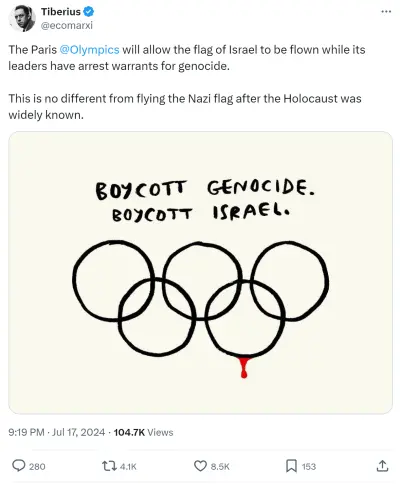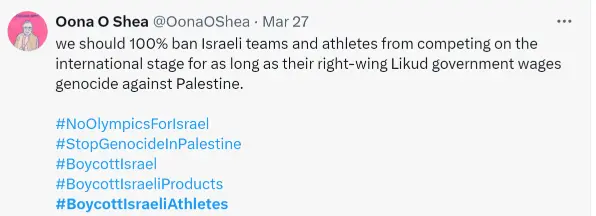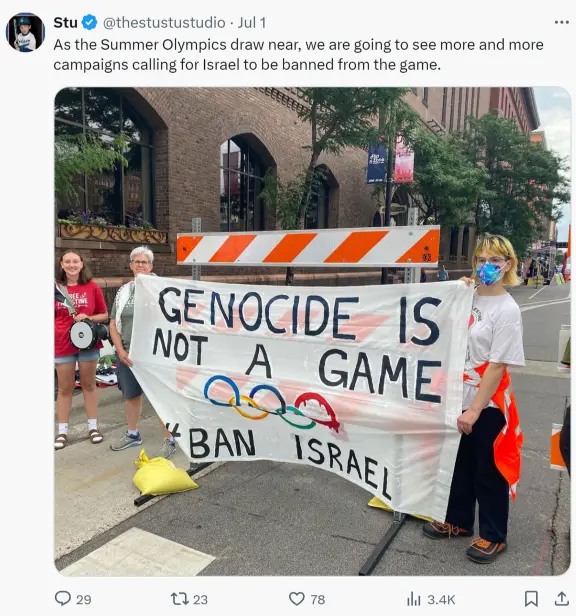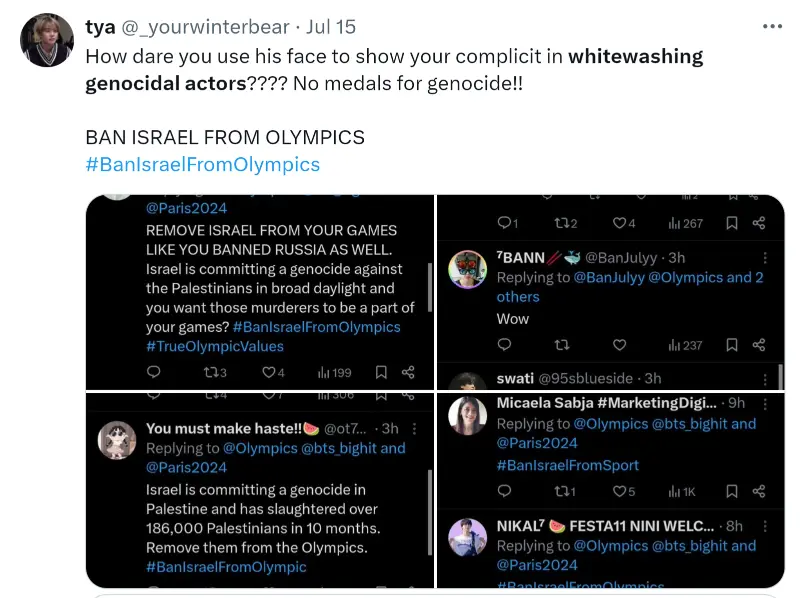With the Olympics starting this week, it’s the perfect time to discuss antisemitism in sports and the boycotting of Jewish and Israeli athletes. The Olympics, a thrilling global event held every four years, captures the attention of millions of fans worldwide. This spectacular event requires years of preparation and is a perfect stage to showcase talents and compete with rival teammates. The Olympics are a platform that symbolizes unity and peace. Athletes from around the world represent their countries and compete proudly, embodying the Olympic spirit.
Unfortunately, antisemitism has shadowed the Olympics, tainting its history with prejudice and discrimination. One of the most infamous instances occurred in 1936 when Jewish athletes faced exclusion and discrimination at the Berlin Olympics under Nazi rule. The 1972 Munich massacre, where 11 Israeli athletes were tragically murdered by a terrorist group, serves as a reminder of the threats Jewish athletes face. As the Paris Olympics approach, these concerns are heightened by recent threats against Israeli athletes. The People Defense Organization has issued alarming statements, including that “the Jewish lobby that controls the French Parliament won’t decide anything anymore,” evoking fears of a repeat of the 1972 tragedy. Amid complex geopolitical tensions, including the ongoing Israel-Hamas conflict and a troubling rise in antisemitism worldwide, this issue is more relevant than ever.
Historical Context of Antisemitism in Sports
Antisemitism in sports is not new. From athletes facing discrimination to countries refusing to compete against Israeli competitors, the Olympic Games have seen their share of prejudice. The 1936 Berlin Olympics, held under Nazi rule, is a stark reminder of how politics and bigotry can overshadow the spirit of sports, as seen in this X post by the St. Louis Kaplan Feldman Holocaust Museum.
Jewish athletes have often faced exclusion and boycotts due to their nationality or religion. During the 1956 Melbourne Olympics, athletes from Egypt, Lebanon, and Iraq refused to compete against Israelis, disrupting the spirit of the Games. Similarly, Jordanian and Iranian kickboxers skipped matches against Israel at the 2019 world championships. From Jewish teenager Harry Sheezel facing a barrage of online antisemitism following his draft into the Australian Football League, to kicking off Israeli athletes from teams, these incidents all underscore the ongoing issue of antisemitism in sports.
Antisemitism in Sports on Social Media
Fighting Online Antisemitism has monitored a rising trend on social media of organizing boycotts against events featuring Jewish or Israeli athletes. Campaigns urging followers to boycott such events are often rooted in political motives, but ultimately serve to perpetuate antisemitism within the sports community.
Here are just a few examples of posts monitored by Fighting Online Antisemitism’s volunteers:






How to Combat Antisemitism in Sports
Implementing zero-tolerance policies for antisemitic behavior is essential. Sports organizations must enforce these policies consistently to prevent and address incidents effectively. From the International Judo Federation suspending Iran in 2019 over its boycott of Israeli athletes and Chelsea FC’s “Say No to Antisemitism” campaign, to coalition of 62 nations demonstrated a collective approach to combating antisemitism in sports by committing to uphold human rights and enforce anti-discrimination policies. Initiatives and stances like these illustrate united efforts against antisemitism and demonstrate the potential of sports to combat antisemitism and hate speech effectively.
Fans and the global community also have a significant role in combating antisemitism in sports. It’s essential for fans to speak out against antisemitism and support inclusive practices. In Germany, the RIAS (Federal Association of Research and Information Centres on Antisemitism), launched the “Zusammen1” project in cooperation with the Jewish sports federation Makkabi Germany to enable fans and athletes to report antisemitic incidents in sports.
Conclusion
With the Paris Olympics on the horizon, we have a vital opportunity to strengthen the Games’ commitment to inclusivity and respect. By recognizing and addressing past incidents of antisemitism targeting Jewish and all athletes, we can make sports accessible, safe, and fun for everyone to be part of and enjoy. Diversity in sports is vital because, ultimately, it nurtures a society that gives everyone a sense of belonging.
Our mission at FOA is to protect Jewish lives by removing antisemitic content from the online world. We hold free workshops and educational programming on how to identify, categorize and report content on social media. Join a free workshop, and learn how you too can be a part of this change.
